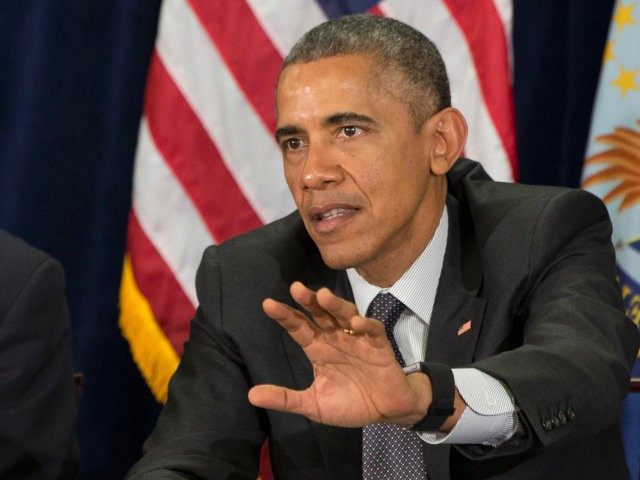White House Chief of Staff Denis McDonough wrote a letter on Saturday night to Senator Bob Corker (and the rest of the U.S. Congress) on behalf of the President regarding the ongoing nuclear talks with Iran.
In the letter, he demands that the U.S. Senate — which has constitutional authority in treaty making — must step back and let the White House navigate the diplomatic realm with Tehran. The White House argues that the deal is facing imminent collapse because the Congress, by continuing to promote sanctions against the terror regime, will supposedly push Iran’s “hardliners” over the edge and force them to leave the negotiating table.
McDonough appears to ensure Congress that they will have a say as part of the final negotiations with Iran.
“We agree that Congress will have a role to play — and will have to take a vote — as a part of any comprehensive deal that the United States and our international partners reach with Iran.”
In the next paragraph, however, the White House statement seemingly contradicts itself.
However, the legislation you have introduced in the Senate goes well beyond ensuring that Congress has a role to play in any deal with Iran. Instead, the legislation would potentially prevent any deal from succeeding by suggesting that Congress must vote to ‘approve’ any deal.
Furthermore, the White House letter appears to misrepresent the political structure in Iran, promoting a fictitious narrative that Tehran is governed by actual representatives in a true parliamentary system.
We believe that the [additional sanctions] legislation would likely have a profoundly negative impact on the ongoing negotiations — emboldening Iranian hard-liners, inviting a counter-productive response from the Iranian majiles [Parliament].
In truth, only candidates deemed to be “qualified” by Iran’s Council of Guardians are allowed to run for parliament. Half of the Council of Guardians is hand-picked by the Supreme Leader, Ali Khamenei — the other half is appointed by the head of the judiciary — who is also appointed by the Supreme Leader. The tension between the “hard-liners” and “reformers” does not exist in reality, because every sitting member of parliament has been approved by the leader of the world’s foremost state-sponsor of terror.
McDonough reveals that the “United Nations Security Council will also have a role to play in any deal with Iran.” The White House letter opines that a UN-passed resolution on Iran “would also increase the international pressure on Iran to live up to the deal and would expand the risks if they failed to do so.”
“The Administration’s request to the Congress is simple: let us complete the negotiations before the Congress acts on legislation,” the letter adds, before stating how “sensitive and consequential ongoing international negotiations” are with Iran. Again, the White House suggests that Tehran is in the midst of an internal clash of ideas over the negotiations between the “hard-liners” and reformists, and that somehow, an aggressive move made by the U.S. Congress could cause popular support to collapse.
The same man (Ayatollah Khamenei) who would be able to launch a nuclear strike with the wave of his hand can also unilaterally agree to a nuclear deal. Outside of a coup d’état, none of the political actors in Tehran could prevent the Ayatollah from making either move.

COMMENTS
Please let us know if you're having issues with commenting.